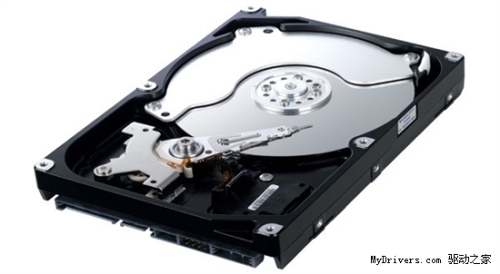 Although it is not optimistic for the industry, Seagate, which was surpassed by Western Digital, has resolutely embraced Samsung Electronics’ hard drive business. According to the latest quarterly financial report released at the same time, Seagate’s current financial status is still not very good, highlighting that Seagate’s recurrence is definitely a downfall.
Although it is not optimistic for the industry, Seagate, which was surpassed by Western Digital, has resolutely embraced Samsung Electronics’ hard drive business. According to the latest quarterly financial report released at the same time, Seagate’s current financial status is still not very good, highlighting that Seagate’s recurrence is definitely a downfall. Coupled with the Western Digital acquisition of Hitachi, since then the consumer hard drive market has left three: Western Digital, Seagate, Toshiba. The real oligarch era began.
According to the final agreement reached by Seagate and Samsung Electronics:
-Samsung's hard drive business will be integrated into Seagate -Extend and broaden existing patent cross-licensing agreement between both parties -Samsung supplies NAND flash memory chips to Seagate for enterprise and solid-state hard drives, hybrid hard drives and other products -Seagate supplies hard drives to Samsung , for desktop PCs, notebooks, and consumer electronics - In-depth development of enterprise-class storage solutions - Samsung acquires a large stake in Seagate - An executive from Samsung will enter Seagate's board of directors. The transaction valued at approximately $1.375 billion will be valued by Seagate. 50% stock, 50% cash paid to Samsung.
Samsung will eventually acquire 45,200,000 shares of Seagate’s common stock, representing approximately 9.6% of Seagate’s total stock. According to the weighted average of Seagate's stock price in the 30 days prior to the signing of the agreement, these stocks were valued at approximately $687.5 million, accounting for half of the total transaction volume.
The entire transaction is expected to be completed after the end of 2011 through the review of US and international regulatory agencies.
According to the earnings report released by Seagate, as of April 1, 2011, Seagate shipped 49 million HDDs in the third quarter of fiscal year 2011, with a total revenue of US$2.695 billion, a year-on-year decrease of 11.6%, a gross margin of 19.1%, and a net profit of US$93 million. , a year-on-year decrease of 82.0%, diluted earnings per share of 0.21 US dollars, a year-on-year decrease of 80%, cash and cash equivalents totaled 2.201 billion US dollars, a year-on-year decrease of 2.7%.
In the first nine months of fiscal 2011, Seagate’s total revenue was US$8.1 billion, its gross profit margin was 19.7%, and its net profit was US$392 million, a significant decrease of 68.1% year-on-year and a diluted earnings per share of US$0.83.
What is an industrial router? Which industries are they mainly used in?
With the continuous development of the network and the continuous progress of various industries, some new concepts and development directions have actually emerged during the period. For example, from the current point of view, many enterprises in the development process in order to have good efficiency and speed, as well as the use of more functions, gradually began to use industrial routers. Of course, for this type of router, we also have a lot of problems, so today we will discuss to see, what is an industrial router? Which industries are they mainly used in?
What is an industrial router?
From the basic concept, an industrial router is a wireless data transmission function that provides users with wireless data transmission through a public wireless network. For example, we use mobile phone data to transfer things to another mobile phone or computer, in fact, the principle is very simple. Of course, the specific usage operation is different. In the process of use, the industrial router has the advantage of allowing multiple users to use the same integrated network system to access the network, which is also very convenient in the work. In fact, at present, industrial routers are gradually widely used in different industries, and the practicability is also very strong.
Industrial routers are mainly used in what industries?
The first is some of the contents summarized for the concept and basic principles of industrial routers, and for the use of industrial routers, it is also some of the issues that we are concerned about. From the current point of view, the first is widely used in intelligent transportation, such as in the application of high-definition electronic bayonet, road wireless video surveillance, vehicle monitoring or security monitoring, etc., which is also very important; Secondly, it is also widely used in the financial industry, such as the use of wireless atm self-service terminals, wireless pos machines or other applications; In addition, it is the application of the power industry, such as transformer remote monitoring management, circuit line video surveillance and substation video surveillance and so on. In short, the use of industrial routers is also more extensive.
How to choose an industrial router?
Although the industrial router is widely used now, the choice we made at the beginning is still more tangled, from the feedback of the market, Movingcomm router is actually very good. According to the needs of the industry environment, based on SD-WAN+ Internet of Things, intelligent networking can then be formed into a large local area network through the cloud platform router in many places. Therefore, the focus of security monitoring can also be concentrated to complete the work of remote video surveillance, but also to meet the needs of remote working, for some of the industries we mentioned earlier, the practicality of this program is also very good. Moreover, the technology of remote networking and intelligent networking is also very mature, and the security and stability are also good. In short, the advantages of Movingcomm router are still many.
Industrial Router,Industrial 3G Router,Industrial Cellular Router,Industrial Router Din Rail
Shenzhen MovingComm Technology Co., Ltd. , https://www.movingcommtech.com
